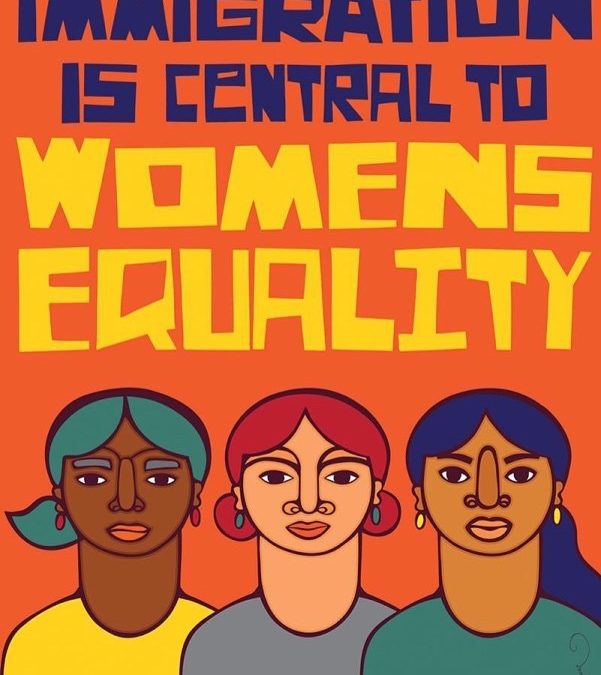Empathy has been on my mind the last few weeks. I have the opportunity to speak and train pretty often on different topics. One of them being how to holistically serve and understand vulnerable populations. I often start off with how empathy is an essential ingredient in being effective when walking alongside, not only people on the margins but people in general.
Empathy, not to be confused with sympathy, drives connection. It’s this beautiful capacity to understand what someone else may be experiencing. Jesus is one of our greatest examples of how to walk with empathy.
But how does one grow in empathy? There’re different approaches to this. However, something that has worked for me is listening to people’s stories and accepting their story as their truth and reality.
Today, in hopes to begin to increase our empathy level on those experiencing oppression through our immigration system, we get to interview 21-year-old Griselda and hear first-hand her story of what it’s like being an undocumented young person here in the U.S.
SA Justice: Griselda, you’re sister, friend, daughter, human trafficking survivor, advocate and the biggest Starbucks fan I’ve ever met. You came to the U.S. from Mexico when you were 6 years old with your family without any documentation. Can you please share with us the first time you realized you were undocumented?
“I didn’t really think about being undocumented until I was around the age of 15 when everyone in school started getting their ID and drivers license, and I realized I couldn’t get one. Everyone started traveling and going on field trips, but I wasn’t allowed since I didn’t have papers and couldn’t get an ID. I started feeling like I didn’t belong. It was embarrassing. I would just tell my friends I didn’t have time to get one because I was embarrassed.”
SA Justice: What did life look like for you and your family since you didn’t have papers?
“What this looked like for us feeling like we are not free, like we have no rights, and constantly feeling afraid. You don’t have the liberty to not be afraid. We knew not to go to certain areas because that’s where there are check points. We had to be home by 9 p.m. We were constantly taken advantage of. We get discriminated against for not being born here. Many people think higher of themselves because they are born here and think lowly of us, but we are here to work hard and get better opportunities.”
SA Justice: Can you share with us an example of how you and your family were taken advantage of for being undocumented?
“My dad’s boss wouldn’t pay him what he promised him because they knew he was undocumented and had no rights here. That was very hard for us as a family because neither my mom or dad couldn’t have a stable job or income. So we were constantly moving, being evicted for not being able to pay rent. And since we didn’t have a social security number, we didn’t qualify for help. I barely saw my parents since they needed to keep three low paying jobs to make sure we had food to eat and a place to sleep.”
SA Justice: Can you share with us how this living without papers would make you feel?
“Useless – you can’t do anything. And you can’t plan because you don’t know what you can do tomorrow. People can’t see your potential because you can’t apply for a job or get the interview to tell people what skills you have. Sometimes I would get depressed, I would try to not think about it as much – I would feel useless. I couldn’t do much. I couldn’t work. I wanted to work. I was actually desperate to work. I wanted to get a driver’s incense and be free to drive.”
SA Justice: Things looks very different for you today. Can you share with us what it’s been like for you now obtaining legal status and on the path to citizenship?
“It’s been relieving. I finally feel free. I can travel and see new places, and I’m not afraid when I pass checkpoints. I feel safe. I’m not afraid driving from and to work or worried when applying for jobs. I now belong and now have the same rights as everyone else. I don’t feel different, and I have the same opportunities.”
SA Justice: So, are you working right now?
“Yes! Today, I have three jobs! Can you believe it? But if I wouldn’t have my papers, I wouldn’t even have been considered. I feel awesome because I interviewed and they saw what a hard worker I am… finally! I finally have the chance for my abilities to become action. It’s amazing that now I can show people my potential. I can show people who I really am and who I want to be. A lot of doors have opened up for me.”

Priscilla Santos
Hola. Lover of love, laughter, justice, adventures, cultures, humanity, inclusion, pranking and Jesus.

